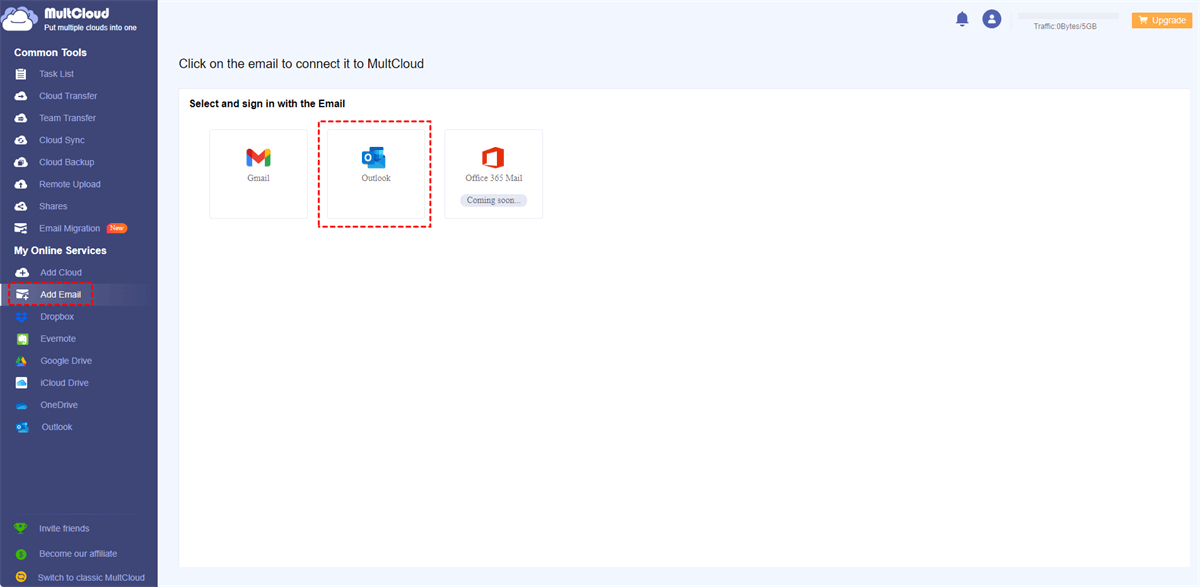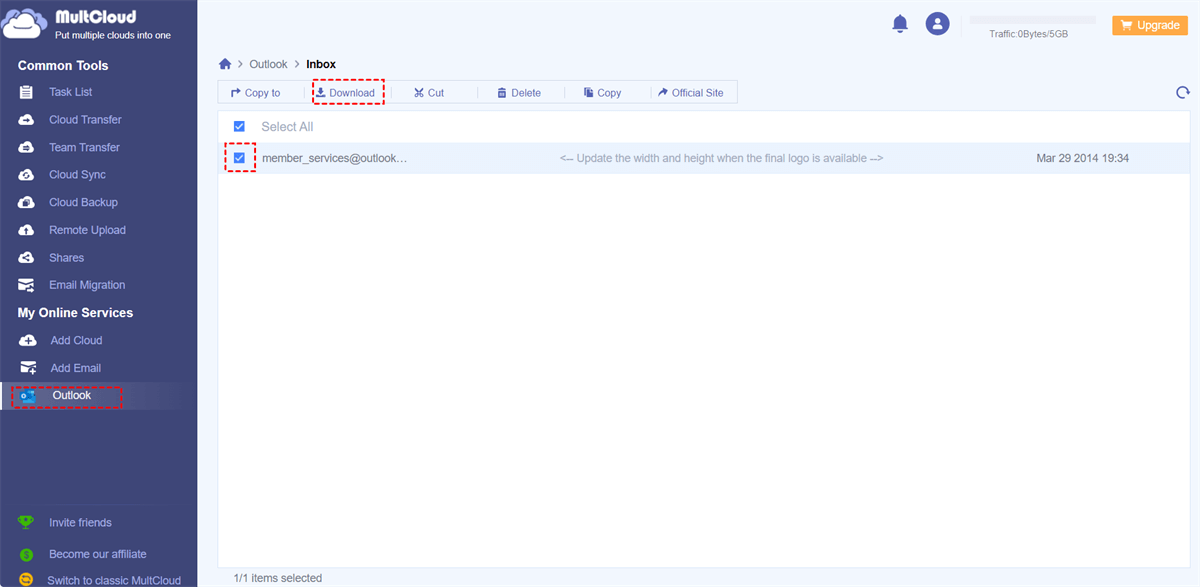Quick Navigation:
Why Need Outlook Migration Assistant?
The need for the Outlook Migration Assistant arises from several scenarios and challenges that users or organizations may encounter when dealing with email data and transitioning to different email environments. Here is why you need Outlook Migration Assistant:
- Upgrading Outlook: It automates the transfer of email data, contacts, and calendars when upgrading to a new version of Outlook, ensuring a seamless transition.
- Automation Benefits: The assistant saves time and reduces errors with automated tasks like data mapping and configuration.
- Data Integrity: It ensures data integrity during migration, preserving accuracy and consistency.
- Troubleshooting: The assistant provides guidance for addressing migration challenges and unexpected errors.
- Efficiency: It simplifies the migration process, making it quicker and less resource-intensive than manual methods.
- Backup and archive: You have to use Outlook Migration Assistant to create an Outlook backup archive for important emails and attachments so that you can keep them safe online, even if they get lost and you can recover them anytime.
Best Free Outlook Migration Assistant - MultCloud
To choose the best Outlook migration tool, here we will show you the easiest Microsoft Outlook migration tool after comparing multiple Outlook migrators, the comprehensive web-based cloud file manager - MultCloud.
Why it’s the best free Outlook email migration tool? Here are some reasons:
- MultCloud not only supports Outlook but also supports Gmail, and other email services while other Outlook migration assistants only support Outlook.
- It allows you to download all emails with attachments from Outlook to an external hard drive, local disk, or even USB flash drive while other Outlook migrators do not support.
- You can migrate all Outlook emails to other 30+ clouds directly without downloading, including Google Drive, Dropbox, OneDrive, MEGA, iCloud Drive, iCloud Photos, pCloud, OneDrive for Business, Dropbox Business, Google Workspace, Shared Drive, and others. At the same time, other Microsoft Outlook migration tools can only migrate Outlook emails to another.
- It uses 256-bit AES encryption and a standard OAuth authorization system to keep your privacy without keeping a copy of your files, and cloud credentials.
- You have up to 10 threads to migrate Outlook emails to OneDrive or other clouds quickly while other Outlook migrators move Outlook emails up to days.
How to Use the Best Free Outlook Migrator?
To Make it clear for you how to migrate Outlook emails with MultCloud, here we will show you how to move Outlook emails to OneDrive directly:
1. Begin by registering for a free MultCloud account and logging in.
2. Next, select "Add Email" and choose Outlook. Follow the provided instructions to grant MultCloud access. Also, click on "Add Cloud" and add OneDrive to your account.
3. Access "Email Migration" on the left panel. Choose Outlook as the source and OneDrive as the target.
Tips:
- To migrate all Outlook emails, including archived, deleted, drafts, inbox, junk emails, and more, simply tick "Outlook". If you only want to back up Inbox emails, expand Outlook and select "Inbox" only.
- To include email attachments, go to "Options" and enable "Save Attachments". You can also set up email notifications in the "Options" menu.
- For automated daily, weekly, monthly, or scheduled Outlook backups, click "Schedule" to configure.
- If you only want to back up specific important Outlook emails, you can use filters like "From", "To", "Date", "Has attachment", and "Is unread" in the "Email Filter" option for a user-friendly selection process.
- Initially, you have up to 50 free email to PDF conversions. For unlimited conversions and access to advanced features, including scheduling and email filtering, you can unlock these by upgrading.
4. Finally, click "Migrate Now" to initiate the backup process from Outlook to OneDrive.
Once you have backed up Outlook emails to OneDrive with success, you'll be able to manage all your Outlook emails in PDF format on OneDrive. Additionally, if your OneDrive storage becomes full, you have the option to free up space, migrate OneDrive data to other cloud services, or upgrade to an advanced OneDrive plan for more storage capacity.
Bonus Tip: Download All Outlook Emails at Once
The Outlook migration assistant not only export Outlook emails to other clouds but also download everything from Outlook to your computer. Here you can find the detailed steps:
1. Click Outlook from the left side after adding to MultCloud.
2. Open the Inbox folder from the Outlook page on MultCloud, then check the box next to Select All, and choose Download.
Tip: Before checking the box, you can scroll down to show all Outlook emails, then tick Select All to choose all emails from Outlook in the Inbox folder.
3. Rename the download, then tick Save Attachments to download all Outlook emails with attachments, and click OK.
Tips:
- You can keep or remove quotations while downloading Outlook emails according to your demands, tick Conversation Format will hide the quotations, and uncheck will show the quotations after downloading.
- Save the last message only helps you to simplify the email format while downloading.
FAQs about Outlook Migrator
1. Can I use the Outlook Migration Assistant for email data backup?
2. What types of email data can I migrate using the Outlook Migration Assistant?
3. Can I schedule automatic backups or migrations using the Migration Assistant?
4. Is the Outlook Migration Assistant a free tool?
The End
With the best free Outlook migration assistant, you’re able to migrate Outlook emails to the cloud that you’re using, keep a backup archive for them, and restore them anytime if something bad happens to your Outlook emails.
MultCloud Supports Clouds
-
Google Drive
-
Google Workspace
-
OneDrive
-
OneDrive for Business
-
SharePoint
-
Dropbox
-
Dropbox Business
-
MEGA
-
Google Photos
-
iCloud Photos
-
FTP
-
box
-
box for Business
-
pCloud
-
Baidu
-
Flickr
-
HiDrive
-
Yandex
-
NAS
-
WebDAV
-
MediaFire
-
iCloud Drive
-
WEB.DE
-
Evernote
-
Amazon S3
-
Wasabi
-
ownCloud
-
MySQL
-
Egnyte
-
Putio
-
ADrive
-
SugarSync
-
Backblaze
-
CloudMe
-
MyDrive
-
Cubby





